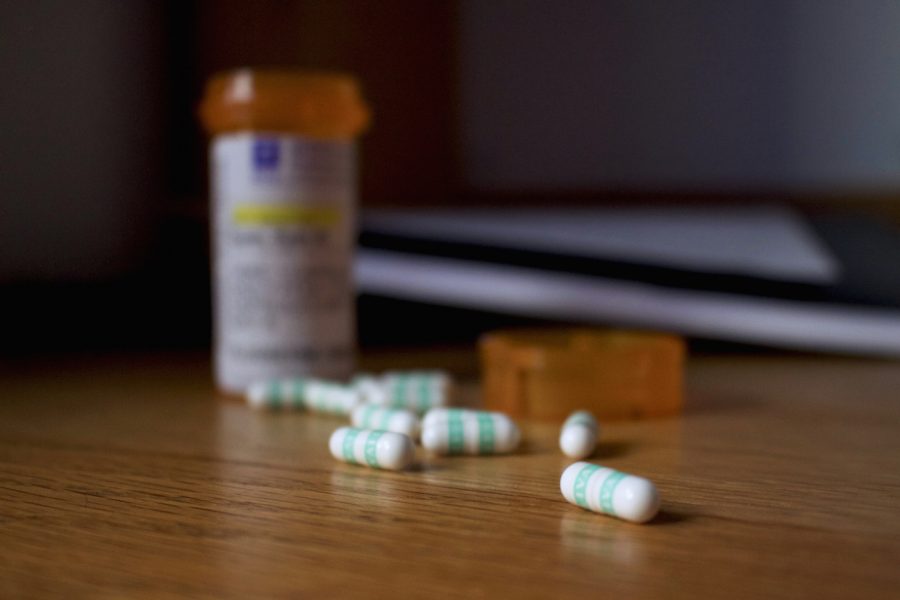Administration, Student Groups Combat Drug Use
Despite the many strides NYU takes to prevent substance abuse on campus, students are consistently finding new ways to break the rules.
January 30, 2017
It’s no secret that drug use is prevalent on college campuses across the country, but many overlook the fact that it also happens close to home.
According to the Addiction Center, college students are twice as likely to abuse drugs and alcohol compared to young people who do not attend college. Drug use is prevalent in colleges all over the United States, and NYU is no exception.
NYU currently has strict policies prohibiting drug use and abuse on campus.
“NYU follows state and federal law as closely as they can [in] on-campus housing,” said Steinhardt senior Alex Lekhtman, who is the president of Students for Sensible Drug Policy (SSDP). “They don’t tolerate possession of any controlled substances or the sale of controlled substances, and obviously they don’t tolerate underage drinking.”
Even with these policies in place, students still report that drug use among their peers. Liberal Studies freshman Stella Ahn said she often sees students smoking marijuana in her building.
“They smoke in certain floors of the hall and inside the building,” Ahn said. “They would just be standing outside in groups of two to sometimes up to seven people.”
Lekhtman said that NYU students use drugs for a number of different reasons.
“People use drugs for social events, parties or concerts, or when hanging out with friends,” Lekhtman said. “People use drugs that stimulate them to help them study or for help with academic affairs. People also use drugs to treat different mental illnesses.”
Drug use comes with the dangers of addiction and overdose, which with certain drugs can have adverse health, behavioral and social consequences. Students, faculty and administrators are taking steps to reduce the harm caused by substance abuse and help students make informed choices about the use of substances.
SSDP, an international grassroots organization, advocates for drug policy reform on a state and federal level. However, NYU’s SSDP also tries to make an impact on a smaller scale.
“Our two main goals are to educate people about drug policy and drugs and to encourage students to get involved in their communities, whether that’s here on campus or in their cities,” Lekhtman said.
Last semester, SSDP invited a harm reduction expert from the Addiction Center in Brooklyn, and conducted Narcan training for NYU students. NYU students were given Narcan kits and trained to administer the drug, which can help reverse the effects of a heroin overdose. Lekhtman said that the training was a success, and the SSDP wants to turn the workshop into a tradition.
SSDP has also helped to educate NYU students about drug use in general.
“We did several meetings where we educated students about all different kinds of drug use,” Lekhtman said. “We talked about safety protocol and what drugs don’t mix well with other drugs, how to reduce unwanted side effects or other harms. We also talked a little bit about the legality of the drugs and where things currently stand as far as policy is concerned.”
NYU’s policy regarding the use of drugs and alcohol aims to ensure students’ safety. For example, NYU’s “Good Samaritan” policy states that students who report the drug abuse or overdose of another student will not necessarily face the consequences of using or being in the presence of drugs and/or alcohol. This encourages students to seek medical attention for peers when necessary. However, the policy does not guarantee immunity for those who report emergencies.
The school offers counseling services for students who have questions or concerns regarding alcohol or drug use. Zoe Ragouzeos, the Assistant Vice President of Student Mental Health and Executive Director of Counseling and Wellness Services, said that NYU’s counselors will be helpful and considerate when faced with students with drug problems.
“Counseling and Wellness Services does not preach abstinence from substances but rather wants to assist students in examining their own behaviors and relationship with substances, so they can make the best decision for themselves if they choose to use substances,” Ragouzeos said. “We offer free, non-judgmental and confidential assistance to NYU students who have questions or concerns related to their use of alcohol or other drugs through a range of services.”
She said that when it comes to school policy on drug and alcohol use, students’ well-being comes first. “The conduct policy at NYU related to drugs and alcohol is wellness-based in that, wherever possible, we wish to see policy violations as opportunities for students to examine their behaviors and the impact they have on their health.”
A version of this article appeared in the Monday, Jan. 30 print edition. Email Herman Lee at [email protected].



























































































































































